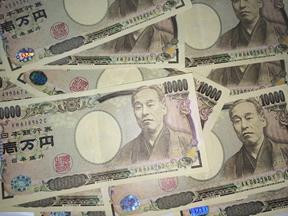Following the Bank of Japan's decision last Friday to maintain its ultra-loose monetary policy, Governor Haruhiko Kuroda and Deputy Governor Shinichi Uchida appeared on Monday, signaling that the economic recovery and price trends are too unstable to consider an immediate shift in policy.
Yen Takes a Hit After these comments, the yen suffered, dropping to a new low for the year on Monday, closing at 148.88. This is the lowest level since last November, prompting a warning about the currency's trajectory from Japanese Prime Minister Fumio Kishida.
Speaking to business leaders in Osaka, Kuroda highlighted the high uncertainty surrounding wages and inflation. He reiterated that the central bank would patiently continue its easy monetary policy under the current yield curve control framework. He emphasized that the Japanese economy is at a crucial stage in achieving a virtuous cycle of wages and prices, and it's essential to nurture the budding economic changes carefully.
Uchida, speaking at an event in Tokyo, also pointed to the "extremely high" uncertainty as a reason for maintaining patience.
In contrast, the U.S. Federal Reserve hinted last week at potential further rate hikes and possibly keeping rates elevated for an extended period. This hawkish outlook from the Fed boosted U.S. Treasury yields and bolstered demand for the dollar, putting pressure on the yen.
Kishida's Warning on Currency Volatility Kishida has typically been reserved in his warnings about exchange rates. However, with the yen nearing a 10-month low against the dollar, he reiterated the government's stance that excessive volatility in the foreign exchange market is undesirable.
While Kuroda did not comment on exchange rate levels in his Monday speech, he pledged to coordinate with the government on currency matters.
As the yen approaches 150 against the dollar, some market observers believe this could be the threshold at which Japanese authorities might intervene in the currency market, similar to their actions last year.
The yen's weakness has fueled inflation, raising concerns within the Japanese government. Before Kishida's comments, senior government officials issued a series of warnings.
Masato Kanda, the top foreign exchange official at Japan's Ministry of Finance, stated that he is in close contact with his U.S. counterparts, and both sides agree that excessive currency fluctuations are unwelcome.






